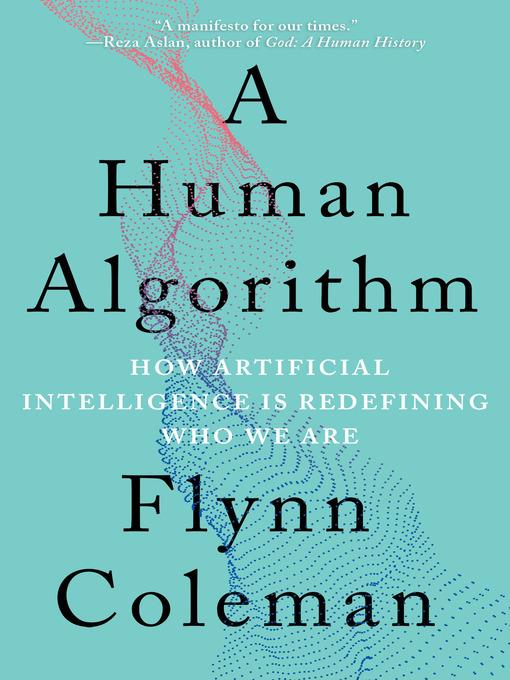
A Human Algorithm
How Artificial Intelligence Is Redefining Who We Are
کتاب های مرتبط
- اطلاعات
- نقد و بررسی
- دیدگاه کاربران
نقد و بررسی

June 24, 2019
Human rights attorney Coleman offers a relentlessly, if unconvincingly, optimistic view of the future that might be ushered in by artificial intelligence, even while arguing that time is running out if humans are to take the steps necessary to control that future. Hers is a clarion call to implement AI correctly, by creating technology that promotes the best humanity has to offer. Coleman argues that diverse voices are needed to accomplish this and ensure that the next generation of smart machines doesn’t incorporate human biases, and that it “is incumbent upon us to attempt to design and implement an ethical framework” into AI. Unfortunately, she points out, most AI leaders “have received virtually no training in the ethical ramifications of creating intelligent machines.” Nonetheless, even as she explains that AI will soon replace approximately 45% of all American jobs, including those of white-collar professionals such as surgeons and writers, and predicts that AI will soon surpass humans as the planet’s most intelligent entities, Coleman remains resolute in her belief that sentient machines can be fairer, more moral, and more empathetic than their creators. This treatise is unlikely to satisfy many that humanity’s future is in good hands, though she presents enough facts and color to compensate.

September 1, 2019
How do we define artificial intelligence (AI)? Is it emotional intelligence or purely factual knowledge? Coleman addresses these questions in this gripping, personal first book on the triumphs and dangers of technology. She explains that humans need first to evaluate our own ethics and abilities for empathy before expecting those values from AI. Through looking at the history of AI, in both its successes and bias (is it sexist that current "assistants" such as Siri, Alexa, and Cortana are female?), Coleman lays out a roadmap for the future of AI. With quotes and research from scientists, researchers, authors, and even poets, Coleman mixes her own viewpoints with those of scholars in this easy-to-read work. Readers of John C. Havens's Heartificial Intelligence and Max Tegmark's Life 3.0 will appreciate this new take on the relationship between humans and AI. VERDICT While Coleman asks as many questions as she answers, this book changes the typical conversation from the effects that technology has on humans to the effects that humans (in their politics, faith, biases) have on technology. It's a must read for both the cyber crowds and those interested in human psychology.--Natalie Browning, Longwood Univ. Lib., Farmville, VA
Copyright 2019 Library Journal, LLC Used with permission.

September 1, 2019
A writer, human rights attorney, and public speaker explores how our relationship with intelligent technologies will help us reimagine what it means to be human. In this earnest, meaty investigation of the ideal future of how we work with intelligent technologies, Coleman posits that we are at the end of the last cycle of technological development led entirely by humans. Artificial intelligence will be a partner in defining the next era of our technological future. Right now, she writes, "we are alarmingly unready for the reality of powerful AI that reaches conclusions and decisions independent from human intervention." We are training machines to teach themselves with AI algorithms that allow computers to learn on their own rather than be incrementally programmed. It is vital, Coleman implores, that we incorporate core human beliefs into AI values. This will open up an encompassing reappraisal of not just the human place in the cosmos; we will need to address the nature of consciousness as it relates to AI and ourselves. Currently, we haven't locked in "a complete definition of synthetic intelligence, much less shape[d] the regulations, rules, codes, values, and laws needed to guide it." The author examines a host of relevant concerns--the role of curiosity, what rights will be afforded AI machinery, and the question of whether a self-aware robot has a soul (whatever that is)--and she emphasizes the importance of transparency, inclusive thinking, and the building of compassion, quality of life, and fairness into the machines to construct a moral imagination. Coleman necessarily operates in the realm of conjecture because she grapples with age-old questions and the unframed future. However, AI's rapidly expanding capacity for autonomy suggests that these are the very questions that must be addressed now. How we choose to develop synthetic intelligence will tell us how we will protect and expand our rights and freedoms in the future. An energetic, holistic consideration of AI's potentialities to impact our lives in profound ways.
COPYRIGHT(2019) Kirkus Reviews, ALL RIGHTS RESERVED.

























دیدگاه کاربران